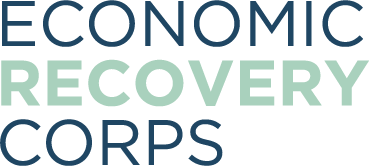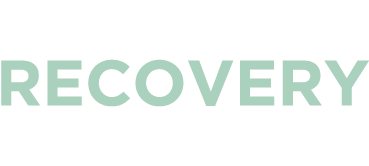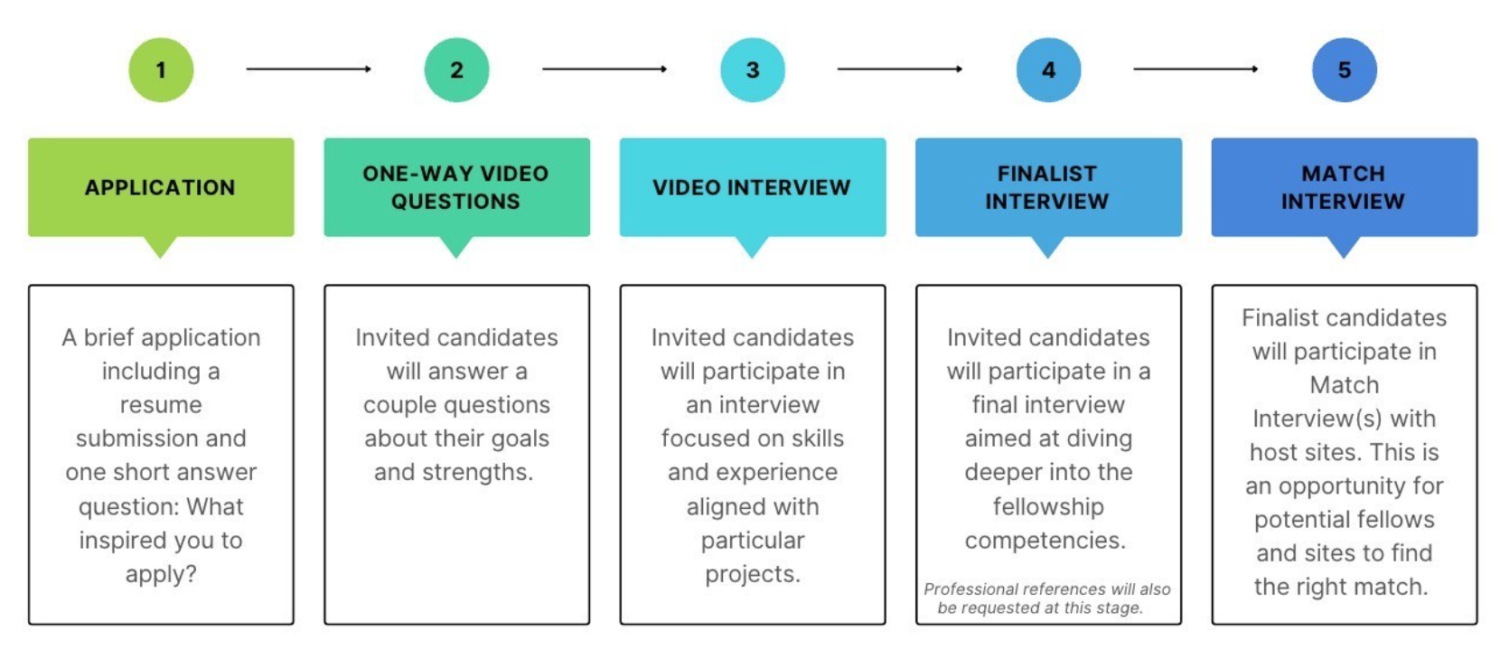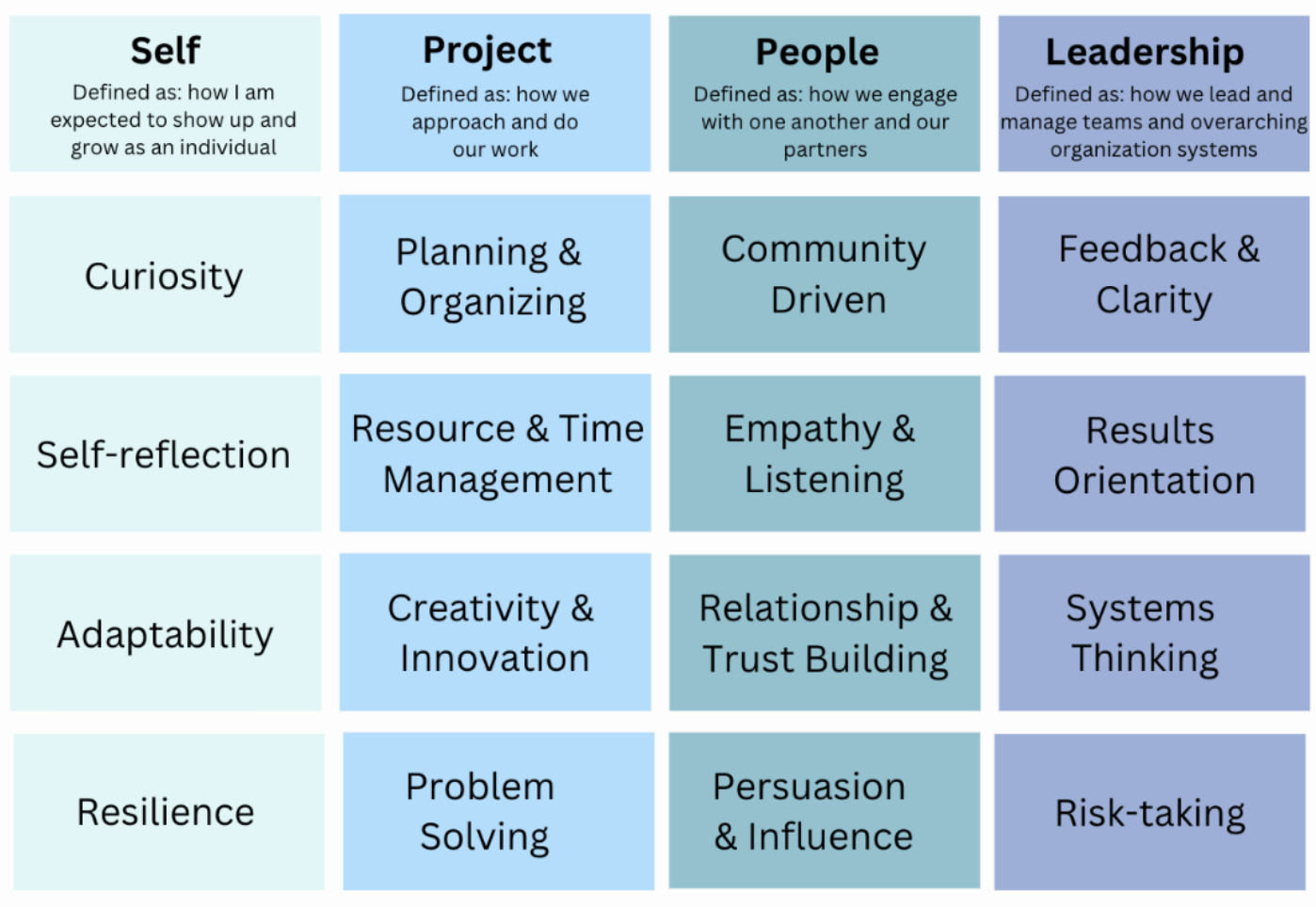Frequently Asked Questions
The Economic Recovery Corps Program (ERC) is a multi-year, $30 million collaborative initiative designed to accelerate recovery from the COVID-19 pandemic in communities and regions throughout the U.S. by connecting organizations with the talent and capacity needed to advance new ways of doing economic development that promote economic resilience and transformative change.
The ERC Program is funded by the U.S. Department of Commerce’s Economic Development Administration (EDA) under the CARES (Coronavirus Aid, Relief, and Economic Security) Act (Public Law 116-136) and led by the International Economic Development Council (IEDC) in partnership with six leading national organizations:
This new initiative has the potential to shift the practice of economic development nationwide in an unprecedented manner — by centering the concerns of regions while simultaneously investing in a cohort of practitioners and leaders equipped with the skills necessary to usher in a new era of economic prosperity. By building a nationwide network of highly-skilled, cross-sector talent embedded in urban, rural, and tribal economic development organizations across the country for two and a half years, IEDC and its partners will promote connectivity, innovation, and knowledge-sharing amongst regions and organizations in a way that elevates new practice and enacts transformational change in the field at large. Through annual convenings and quarterly peer learning, networking, and exchange opportunities, the knowledge and practice produced by Fellows and hosts will be shared and disseminated via new research, curricula, and approaches to scale impact and drive change during the pilot phase and beyond.
IEDC and its partners will monitor the results of the program, both as a whole and for each host organization individually. The research and analysis conducted throughout this program will produce real-time insights and benefits to extend across the larger economic development landscape. Ideally, the knowledge gathered through this program will inform the work of all partner organizations and the Economic Development Administration (EDA). Ultimately, these lessons learned will be used to foster change in the practice of economic development.
This program differs from shorter term capacity-building efforts such as internships, technical assistance, or consultants. Fellows will be embedded in a community or region for two and a half years, where they will have the ability to focus their efforts on a specific project or challenge championed by the host organizations themselves. This longer–term engagement will allow Fellows to form trusting relationships and integrate into the community, while developing deeper knowledge about the challenges and potential solutions. The ERC program is designed to be complementary to other “boots on the ground” technical assistance and capacity building efforts such as AmeriCorps, Rural Partners Network, EDA’s economic development representatives, or disaster recovery support. The role of the Fellow is to be a connector, to ensure that local communities are aware of the many federal, state, and regional resources, programs, and partnerships available to help them advance and sustain their work beyond the ERC Fellowship.
Selected host organizations will receive technical assistance, planning, and capacity-building support from an ERC Fellow who will be based in their community or region for two and a half years at no cost to Hosts. Fellows will help identify and advance innovative, locally-driven initiatives to build stronger, more resilient economies in partnership with the host organization.
- Hosts have produced work plans that outline scope of services, deliverables, and project metrics for Fellows, and will be tied to community-driven economic and community development plans.
- Hosts were involved in the interview and matching process, facilitating engagement on all sides to make the best match.
- ERC Fellows and Hosts will be organized into peer-learning sub cohorts led by one of the six ERC partners who will provide monthly coaching and support. Combined with annual convenings and quarterly peer learning, networking, and exchange opportunities, the knowledge and practice produced by Fellows and Hosts will be shared and disseminated to the broader economic development field to scale impact and drive change.
Below are some examples of the current cohort of host organizations.
- City, county and tribal government; Council of Governments (COG)
- Regional planning organizations
- Economic development districts (EDD)
- Entrepreneurial Support Organizations (ESO)
- Institution of higher education or a consortium of institutions of higher education
- Public or private non-profit organization like a Chamber of Commerce, community development corporation (CDC), or intermediaries
- Economic development organizations (EDO)
- Community Development Financial Institutions (CDFI)
- Commercial corridor or Main Streets
- Regional, municipal, or multi-stakeholder collaboration formed to advance a shared economic development goal or strategy.
Priority consideration was given to applicants located within a geography or regional context that aligns with the EDA’s Investment priorities:
https://www.eda.gov/funding/investment-priorities.
Additionally, host sites were selected based on a variety of factors including, but not limited to:
- A clearly demonstrated project need that is ready for delivery through the support of an ERC Fellow.
- The existing capacity to participate in planning and implementation of economic development strategies – during the host application process and throughout the Fellowship.
- A dedicated leadership team, committee or advisory board committed to collaboration and building robust and inclusive partnerships with diverse stakeholder groups.
- A good understanding of regional assets and issues that will enable (or constrain) a Fellow’s work in their community.
IEDC and the ERC program partners screened each expression of interest to ensure the key eligibility criteria were met. Review teams of ERC program partners were assembled based on the type of organization applying and specific subject matter expertise required to best assess an applicant’s proposed project. Final selections considered an applicant’s level of readiness and capacity to host a Fellow; geographic and economic conditions prioritized in EDA investment criteria for recovery and resilience; and the transformative potential of the Host’s proposed project.
No. Hosts do not receive direct payments for participation in the ERC program, nor does participation in this program provide a direct funding source to advance the host project.
Hosts are provided complimentary IEDC organizational memberships to greater support their work with resources, research, member discounts, and more. Hosts will be invited to attend IEDC’s annual conferences along with Fellows and other in-person training events but Hosts must cover their costs.
There is often a gap between planning and implementation, with a lack of capacity for driving community-led economic development, especially in underserved and under-resourced communities. The Economic Recovery Corps connects experienced, early to mid-career professionals with organizations to enact the transformational change that these plans can drive. Fellows are empowered to work collaboratively in communities, and will be equipped with ongoing training, education, and professional development as well as ongoing peer support and coaching to carry out the established work plan throughout the Fellowship from the ERC program and its partners.
Fellows will be working as community consultants to host organizations and paid a monthly living stipend by IEDC. They will NOT be staff members of the host organization, instead they will work as network builders to accelerate a community project across multiple partners.
Fellows will serve as community builders and connectors that work to strengthen and empower the aligned project by fostering relationships, encouraging collaboration, and supporting acceleration of the project. This could include, but is not limited to:
- Supporting the creation of a regional partnership to foster growth of an industry sector by launching a sustained program to provide incentives, workforce training, venture capital debt, facility development, etc. to recruit a business from a priority sector.
- Organizing a small business ecosystem support structure to offer improved access to capital, technical assistance, professional services, and peer support to accelerate the growth of local small businesses.
- Organizing a place-based economic revitalization initiative and developing a specific property or commercial district of regional significance for economic activity.
- Organizing a housing development acceleration initiative by building alliances between economic development and housing industry stakeholders to create and implement the policies, partnerships, and initiatives necessary to dramatically increase the number of workforce housing units in a community.
- Organizing an employer partnership to support priority job pathways to convene, analyze data, and facilitate the identification of specific types of regional jobs that are in high demand by major employers, pay a living wage and offer career advancement, and are struggling to find qualified workers.
An ERC Fellow is permitted to work on a project that was initially funded with EDA funds, such as a planning grant. If the Host Community has an initiative or project that results from that grant, the Fellow may work on it. Similarly, the Fellow is permitted to work on an initiative or project that is being implemented based upon a CEDS.
However, Fellows cannot duplicate any activities funded under any other federal programs, including, but not limited to a current EDA Award. Any work on awards funded under other federal programs requires documentation of the activities performed and an explanation of how the work will supplement and not duplicate previously funded activities.
Please contact IEDC if you have additional questions relating to this issue.
- 30-month contract with an economic development project aligned with your professional background and skills.
- $90,000 annual living stipend for 2.5 years ($225,000 total)
- $10,000 post-fellowship readjustment stipend (contingent upon completion of program).
- Access to professional development opportunities, including up to $27,500 for travel expenses, annual in-person training retreats, and access to up to two conferences per year hosted by IEDC or one of the ERC partners.
- A laptop computer, software, and collaboration tools. Fellows will be able to keep their laptops post-fellowship.
- Mentorship opportunities with an economic development professional through IEDC’s member network.
- Quarterly virtual peer networking and cohort exchanges.
- Monthly Community of Practice engagements within the sub-cohorts.
- An opportunity to pursue certification to become a Certified Economic Developer (CEcD) and/or Entrepreneurship Development Professional (EDP), for those who are interested in classes and sitting for the exam(s).



